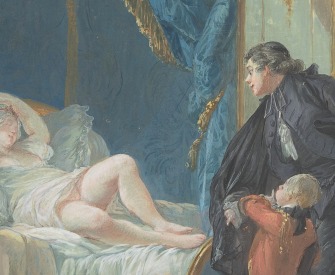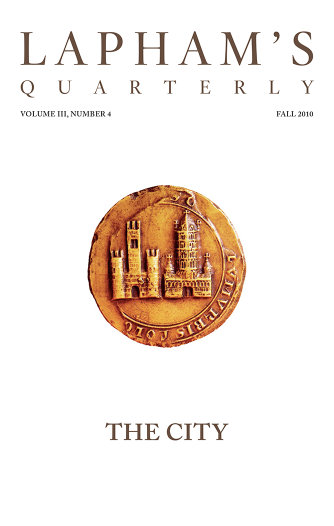Sunday, August 27
Another day quite free from marked prostration and pain. It seems indeed as if peace and nutriment from heaven subtly filter into me as I slowly hobble down these country lanes and across fields, in the good air—as I sit here in solitude with Nature—open, voiceless, mystic, far removed, yet palpable, eloquent Nature. I merge myself in the scene, in the perfect day. Hovering over the clear brook water, I am soothed by its soft gurgle in one place, and the hoarser murmurs of its three-foot fall in another. Come, ye disconsolate, in whom any latent eligibility is left—come get the sure virtues of creek shore, and wood and field. Two months have I absorbed them, and they begin to make a new man of me. Every day, seclusion—every day at least two or three hours of freedom, bathing, no talk, no bonds, no dress, no books, no manners.
Shall I tell you, reader, to what I attribute my already much-restored health? That I have been almost two years, off and on, without drugs and medicines, and daily in the open air. Last summer I found a particularly secluded little dell off one side by my creek, originally a large dugout marl-pit, now abandoned, filled with bushes, trees, grass, a group of willows, a straggling bank, and a spring of delicious water running right through the middle of it, with two or three little cascades. Here I retreated every hot day, and follow it up this summer. Here I realize the meaning of that old fellow who said he was seldom less alone than when alone. Never before did I get so close to Nature; never before did she come so close to me. By old habit, I penciled down from to time to time, almost automatically, moods, sights, hours, tints and outlines, on the spot. Let me specially record the satisfaction of this current forenoon, so serene and primitive, so conventionally exceptional, natural.
An hour or so after breakfast I wended my way down to the recesses of the aforesaid dell, which I and certain thrushes, catbirds, etc., had all to ourselves. A light southwest wind was blowing through the treetops. It was just the place and time for my Adamic air bath and flesh brushing from head to foot. So hanging clothes on a rail nearby, keeping old broad-brim straw on head and easy shoes on feet, haven’t I had a good time the last two hours! First with the stiff elastic bristles rasping arms, breast, sides, till they turned scarlet—then partially bathing in the clear waters of the running brook—taking everything very leisurely, with many rests and pauses—stepping about barefooted every few minutes now and then in some neighboring black ooze, for unctuous mudbath to my feet—a brief second and third rinsing in the crystal running waters—rubbing with the fragrant towel—slow negligent promenades on the turf up and down in the sun, varied with occasional rests, and further frictions of the bristle brush—sometimes carrying my portable chair with me from place to place, as my range is quite extensive here, nearly a hundred rods, feeling quite secure from intrusion (and that indeed I am not at all nervous about, if it accidentally happens).
As I walked slowly over the grass, the sun shone out enough to show the shadow moving with me. Somehow I seemed to get identity with each and every thing around me; in its condition Nature was naked, and I was also. It was too lazy, soothing, and joyous-equable to speculate about. Yet I might have thought somehow in this vein: Perhaps the inner, never-lost rapport we hold with earth, light, air, trees, etc., is not to be realized through eyes and mind only but through the whole corporeal body, which I will not have blinded or bandaged any more than the eyes. Sweet, sane, still nakedness in Nature! Ah, if poor, sick, prurient humanity in cities might really know you once more! Is not nakedness then indecent? No, not inherently. It is your thought, your sophistication, your fear, your respectability, that is indecent. There come moods when these clothes of ours are not only too irksome to wear but are themselves indecent. Perhaps indeed he or she to whom the free, exhilarating ecstasy of nakedness in Nature has never been eligible (and how many thousands there are!) has not really known what purity is—nor what faith or art or health really is. (Probably the whole curriculum of first-class philosophy, beauty, heroism, form, illustrated by the old Hellenic race—the highest height and deepest depth known to civilization in those departments—came from their natural and religious idea of nakedness.) Many such hours, from time to time, the last two summers—I attribute my partial rehabilitation largely to them. Some good people may think it a feeble or half-cracked way of spending one’s time and thinking. Maybe it is.
From Specimen Days. In 1862 Whitman traveled south in search of his brother, whom he feared a casualty of the Battle of Fredericksburg. After finding his brother unharmed, Whitman volunteered in Union hospitals, dressing wounds and writing letters to victims’ families. He recounted his experiences during and after the Civil War in this book, which he called a “mélange of loafing, looking, hobbling, sitting, traveling—a little thinking thrown in for salt.” Leslie Jamison describes it as a series of “accumulations, joyous and jarring: summer pleasures, urban streetscapes, bodies strewn across battlefields.”
Back to Issue


